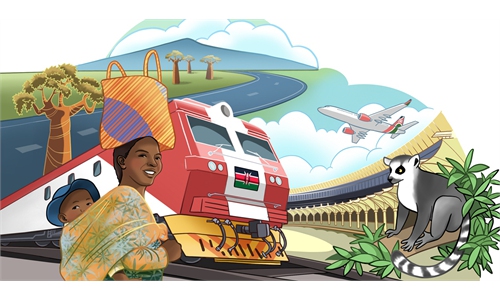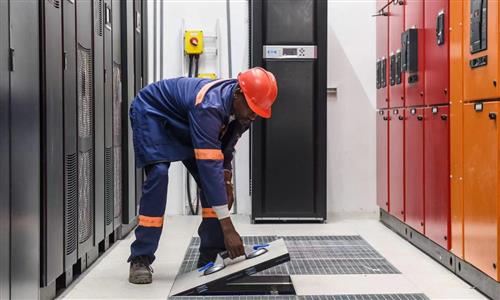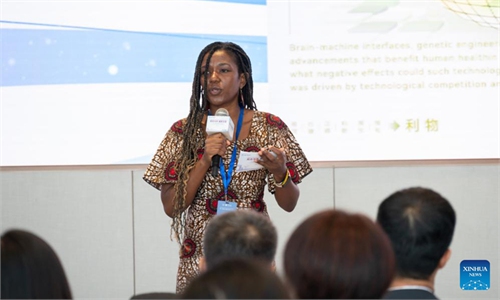OPINION / GLOBAL MINDS
China a model for development that African countries can follow
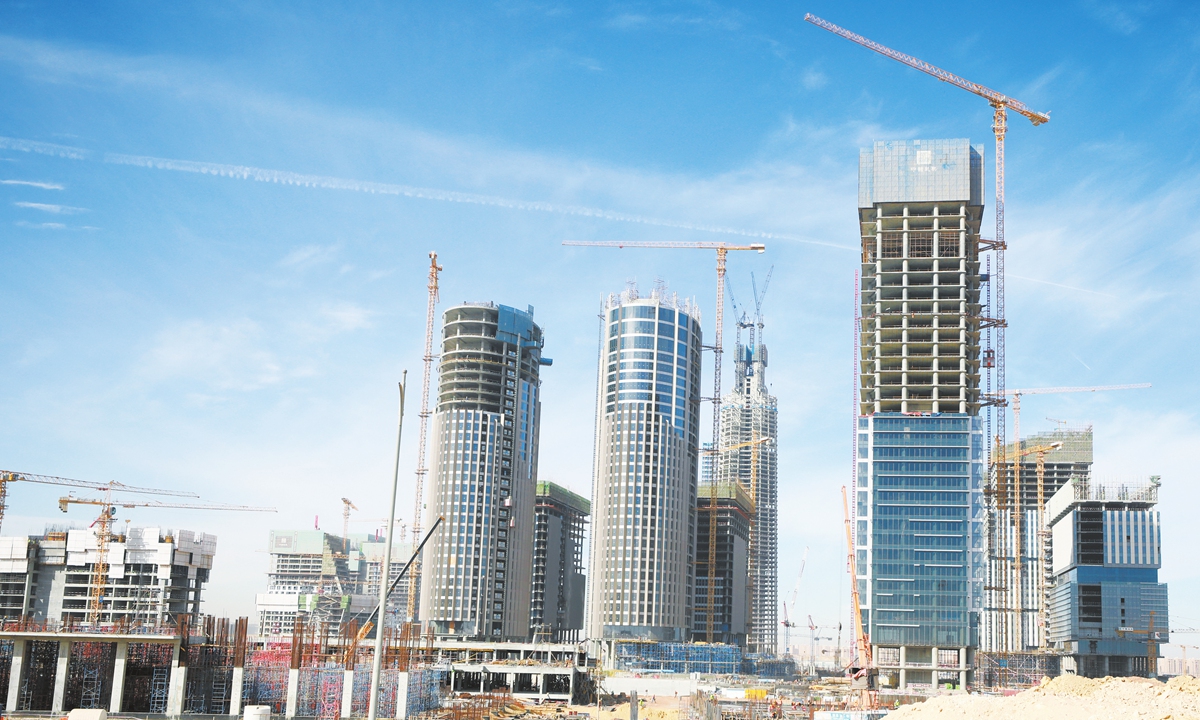
The Central Business District at Egypt's New Administrative Capital. Photo: IC
Editor's Note:The 2024 Summit of the Forum on China-Africa Cooperation (FOCAC) will be held in Beijing from September 4 to 6. It takes place at a critical juncture when the world is grappling with various regional and global crises and there is a pressing need for countries from the Global South to join hands. How will this year's FOCAC elevate ties between China and Africa? What is the significance of building a high-level China-Africa community with a shared future? The Global Times (GT) interviewed a number of former officials and pundits from various African countries to share their insights and stories.
In the first article of this series, GT reporters Qian Jiayin and Bai Yunyi interviewed Essam Sharaf (Sharaf), former prime minister of Egypt and chairman of the Egyptian Sharaf Foundation for sustainable development. He said that China's growing influence in Africa is timely, essential and vital.
GT: This year marks the 10th anniversary of the establishment of the comprehensive strategic partnership between China and Egypt. During these 10 years, you have visited China many times. When did you first come to China, and what was your first impression of China? How do you evaluate the deepening of the China-Egypt relationship?
Sharaf: I have visited China about 40 times, and my first visit was in 2005. Although, at the time, Egypt was leaning toward the US, I insisted on visiting China. When I arrived in China, I visited many places and met many people. To tell you the truth, I was impressed. I told my colleagues that China is a great country, and it will be a major country in the world.
Now, the relationship has deepened in terms of economic cooperation. But the most important thing is the political stances. The political stances of Egypt and China are almost identical. Egypt and China were upgraded to a strategic comprehensive relationship 10 years ago, which means there is now a deeper and wider level of relationship between the two countries, covering almost all aspects. If you ask me about the evolution, I believe that the relationship is very strong, and I hope that this relation grows and has a positive impact on both countries as well as other countries.
GT: The two great civilizations of China and Egypt each have a long history and splendid culture, as well as many similarities. As a politician from Egypt, with its great civilization, how do you evaluate the series of global initiatives and ideas proposed by China?
Sharaf: The relations between China and Egypt actually go back maybe 2,000 years through the ancient Maritime Silk Road. These two civilizations have influenced humanity, history and the civilization of the world over time. I believe that, for humanity, it is our responsibility to build on the relationship between these two countries, as very few countries have such deep civilizations.
If we talk about global prosperity, global prosperity requires getting rid of the deficits in global peace, global trust, global connectivity and global development efforts, which are China's global initiatives' goals are.
For example, the Belt and Road Initiative (BRI) deals with international connectivity. BRI is actually considered the most important international cooperation platform. When we talk about a trust deficit, we have the Global Civilization Initiative. When we talk about reducing the security deficit, we're talking about Global Security Initiative. When we talk about development deficits, there is the Global Development Initiative. I consider these initiatives to be a road map for the world toward global prosperity, global peace and global development. And it's very difficult to have such a package from any other country.
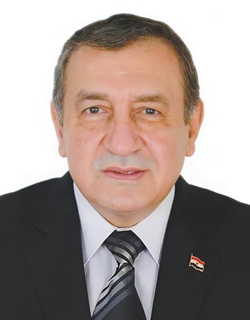
Essam Sharaf. Photo: Courtesy of Sharaf
GT: How do Egyptians, both the public and businesses, perceive the Belt and Road Initiative? Could you share some successful examples of infrastructure projects between China and Egypt?Sharaf: In Egypt I found that the perception of BRI has changed over time from looking at the BRI as just a project to looking at it as a cooperation platform. That change, I believe, is highly correlated to the relations between China and Africa. I also believe the BRI has and will play a vital role in the development of the Global South.
Egyptians now perceive BRI in a much more comprehensive way than 10 years ago. For example, we have projects in different disciplines, like transportation, electricity and solar power, among others. And the most important one is the huge work of Chinese companies in the New Administrative Capital. China is doing an excellent job there.
Furthermore, China has a lot of experience with special trade and economic zones. We have a Chinese economic zone in Egypt now, but I believe that we need more as we benefit from the huge experience of China in this field. I believe that the Chinese can do a lot in terms of cultural exchanges and mutual learning, which is something we should work on. China and Egypt should cooperate and lead together through dialogue, and understanding. As the United Nations Secretary General said, we have a trust deficit. We need to talk, we need to understand each other, we need to get closer, and once we get to know each other and understand and respect each other, then the cooperation projects will be much, much easier.
GT: Have you taken note of the concept of "Chinese modernization"? Do you think China's development model offers valuable insights for Egypt? What challenges does Egypt face when trying to adapt and localize these experiences?
Sharaf: China offered a model for modernization of developing countries. How China transferred from this level to this advanced level is very important for Egypt and other developing countries. China succeeded in achieving outstanding development through several modernization pillars, including putting people at the center, respect for diversity and innovation-driven development.
Egypt is now surrounded by a hostile environment. But still, I believe that the closer relationship between Egypt and China will benefit us as we analyze the modernization process of China. Once we actually have a peaceful environment in the area, I believe Egypt will be able to make great strides toward real modernization.
GT: For a long time, the West has viewed cooperation between China and Africa through the lens of cold war thinking. Western media has portrayed the development financing provided by China to Africa as a "debt trap." How do you view these demonizing reports on cooperation between China and Africa?
Sharaf: In the process of deepening China-Africa relations, China has been subjected to slander and smears from some countries. I call it a media war, led by the West, aiming to impede the advancement of China-Africa relations. When we talk about "debt trap," most of African debts to China are due to infrastructure projects. Infrastructure projects are long-term with long-horizon returns. You cannot actually talk about how I'll give you money today and get a benefit the next day.
These infrastructure projects attain a very good level of economic and social returns from employment and poverty alleviation, and provide much of the continent with many job opportunities. These projects are the decisions of African countries based on their own conditions. China is not forcing African countries to do anything, but rather these countries are calling on China to help them.
